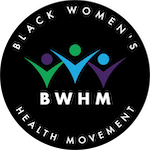How African American Women Experience Trauma
Trau – ma: A deeply distressing or disturbing experience; or a physical injury.
“A complex occurrence not fully understood without evaluating the mental, physical, historical, social and cultural aspects of the experience. Trauma does not discriminate; but how it is perceived and experienced is different for Black women.” –Dr. Lisa Newton
Trauma is a human experience that does not discriminate. In fact, feeling overwhelmed or upset is normal if you experience a traumatic event like rape, a car accident, or a natural disaster. However, some African American women (AAW) are also dealing with traumatic experiences built on social, cultural and historical issues that affect their quality of life.
Trauma, PTSD and Black Women: Symptoms, Effects and Ways to Cope
The symptoms experienced from trauma may be clinically diagnosed as Post Traumatic Stress Disorder (PTSD). The American Psychological Association describes PTSD as a person’s emotional response to:
- Experiencing a serious physical threat to one’s life or a loved one
- Facing the destruction of one’s home or community
- Witnessing someone killed or injured
Repeatedly viewing destructive or brutal events may also lead to a PTSD diagnosis because one does not have to feel fear, terror, or helplessness firsthand. Although every person who experiences trauma does not result in a PTSD diagnosis; repeated or horrendous events like domestic violence or physical abuse often leaves victims with prolonged mental and emotional injuries.
PTSD Symptoms
The amount of distress some people face from traumatic events makes it difficult to control emotions or handle normal life experiences. Making decisions or plans becomes difficult because the effects of trauma changes how one sees the world.
Some common symptoms of PTSD include:
- recurring negative feelings
- flashbacks or nightmares
- avoidance of situations that recall the experience
- lack of interest, delayed responsiveness, detachment and disaffection
The trauma may be acute if the symptoms last less than 4 weeks. Symptoms lasting more than a few months are identified as more chronic in nature.

PTSD in Black Women
Many black women who suffer from PTSD are not aware when exhibiting symptoms of this condition partly because the indicators feel like normal life experiences. In addition, before the traumatic event occurred, some AAW are already experiencing stress due to racism and discrimination which further intensifies negative feelings resulting from PTSD.
A clinical diagnosis of PTSD and a legacy of persistent racism and discrimination illustrates ways in which fear and insecurity further debilitates some black women. Not only do some black women in many cases daily, already experience a great deal of cultural trauma but in some cases passed multigenerational issues resulting from slavery have already created feelings of degradation, shame, inferiority and distrust. The historical conditioning are traumatic responses that often lead to self-abuse, ineffective parenting, violence and self-doubt.
Historical Effects of Trauma
When cycles of oppression and institutionalized racism (whether conscious or unconscious) are paired with current experiences of trauma, the belief that the benefits of society are not accessible to black women often becomes reinforced. The traumatic belief may be particularly harmful when conversations or role models are unable to counter real or imagined negative behaviors and feelings experienced because of the trauma.
The multi-layered trauma has the potential to discourage, misguide, and influence negative thinking that may also affect future generations negatively by restricting self-improvement, self-expansion and the ability to self-expression. Since multigenerational behaviors did not manifest overnight, and the actions are often masked and subdued, it is reasonable to believe that some work, time and energy are essential to heal from the trauma that some black women face.
Coping with Trauma and PTSD
The good news is there are many solutions that can help black women move beyond the negative effects from trauma whether it was experienced personally, witnessed or passed generationally. Whether clinical treatment is an option or not, the healing process beyond the trauma requires self-awareness leading to optimal self-care.
Some ways to cope include:
- Self-examination to understand how the trauma has impacted their life
- Consideration of how the trauma may minimize future opportunities
- Determine the self-care necessary to meet future needs and expectations
Black women are also encouraged to share their stories with family, friends and others to build a support system able to understand the trauma. Participating in dialogue circles that considers the cultural issues that black women in America face may also be beneficial. When we share our traumatic experiences with others, not only do those who hear our stories heal, we self-heal from the stories we tell.
If you are interested in BWHM Sister Circles and Assessments or have questions or concerns send us a message.


